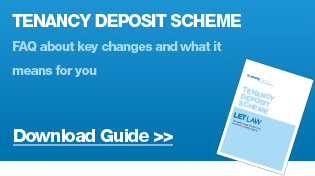
We often hear from frustrated landlords who despite serving notices on their tenant, are advised that the local authority will not re-house them, forcing the landlord to raise an eviction action to repossess their property. For landlords who have been through the legal process, an eviction action can be both lengthy and costly. So will the local authority re-house my tenant following eviction?
Are Councils obliged to rehouse a tenant?
The Council must assess homeless applicants to decide whether or not they are entitled to permanent or temporary accommodation. They initially look at whether the applicant is actually homeless, or simply "at risk" of being homeless. Due to a severe lack of council housing in all areas, the council must also assess whether an applicant has "priority need" to ensure that their housing stock is being allocated to those in most need of it. Those being assessed as being in "priority need" may include those with dependent children (or are pregnant), individuals at risk of domestic abuse and vulnerable applicants.
If the applicant is assessed as being in priority need, the council will then look at whether they are "intentionally homeless". Did they deliberately do/not do something which caused the situation? It should be noted that just being evicted due to rent arrears does not lead to an automatic conclusion of intentionality. The council should also look at the reasons which led to the arrears accruing.
If deemed not to be intentionally homeless, the council should offer permanent housing. If deemed to be intentionally homeless but with priority need, then they should offer only temporary accommodation (usually 28 days) and assistance to secure alternative accommodation.
Where you have served notice on your tenant, they remain in the property and are simply "at risk" of homelessness, the council has no legal obligation to re-house. However, depending on the council and the availability of housing, they may choose to re-house, avoiding an eviction. However, strictly speaking, until you have obtained a court order and repossessed the property, the tenant is not actually homeless and the council has no legal obligations towards them to re-house.
Tenants are increasingly aware of their rights and have far greater access to advice and assistance. It is therefore imperative that landlords are also be aware of their rights and obligations in terms of evicting their tenants and follow the correct process. If you require any further specific information, please contact a member of our LetLaw team.

